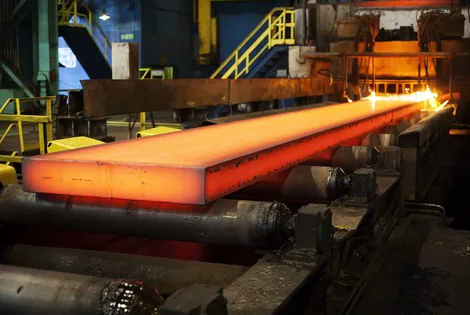Exports of rebar products increased by 60% in nine months
In the context of weak domestic demand, Russian metallurgists increased exports of rebar products by 60% year-on-year in the three quarters of 2025. Analysts see the potential for expanding supplies in CIS countries with a lack of local capacity and in the Turkish market, where construction activity is recovering.
In January—September, rebar exports from Russia increased by 60%, to almost 2.5 million tons. Most of the supplies (about 60%) came from the CIS countries. The share of the Middle East and North Africa markets decreased from 45% to 35% over the year. By the end of 2025, exports will amount to 3.1 million tons per year. For 2026, the company plans to maintain this volume of shipments, but with a significant weakening of the ruble, the figure may be higher.
Russian metallurgists are increasing exports amid a decline in domestic consumption. Demand in construction will decrease by 10% in 2025 after falling by 6% a year earlier.
In 2025, Turkey almost doubled its purchases of ferrous metals from Russia, including rebar, due to the need to restore the construction infrastructure. Rebar exports from Russia to Turkey amounted to 200-250 thousand tons in the third quarter. Quarterly growth is estimated at 10-15%, and annual growth is estimated at 20-30%, which is attributed to the recovery of the Turkish construction market.
In their review, B1 analysts point to a possible significant increase in the supply of rebar, rolled and shaped products to Uzbekistan by a total of 1.2 million tons by 2030 due to a shortage of capacity and economic development. By 2035, metal consumption in Azerbaijan and Belarus is projected to increase by 56%.
Export growth combined with an increase in production costs, logistics costs and a weakening ruble may support rebar prices in November—December. Fittings in the ports of the Black Sea have been gradually becoming more expensive since the beginning of November. In the third week of the month, quotations added 0.38%, increasing to 37.36 thousand rubles per ton (FOB). But this is 25.3% less than a year earlier. The cost of rebar in the domestic market for the fourth quarter of 2025 is estimated at 38.5 thousand rubles per ton. According to analysts' forecasts, by the end of 2026, quotations may grow by 21.9%, to 46.9 thousand rubles per ton.
Alexander Shevelev, CEO of Severstal in July 2025, Prime:
"We are trying to export more complex products with a higher premium price."
In November, we record stagnation in producer and trader prices for rebar, but in December we allow an increase in the range of 500 rubles per ton due to an increase in tariffs of Russian Railways. In the long term, up to December 2026, the increase in the cost of fittings will be restrained and primarily driven by






